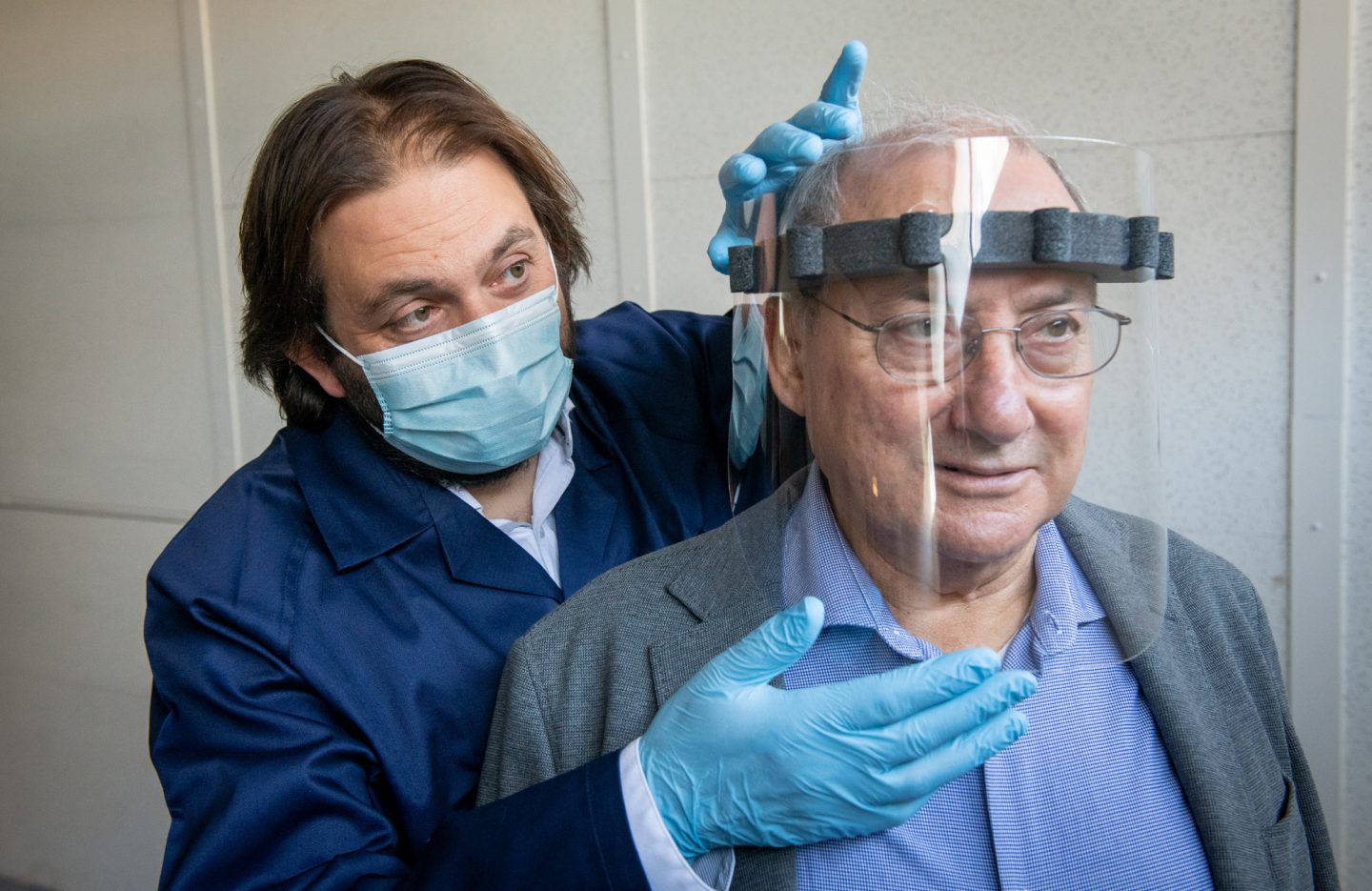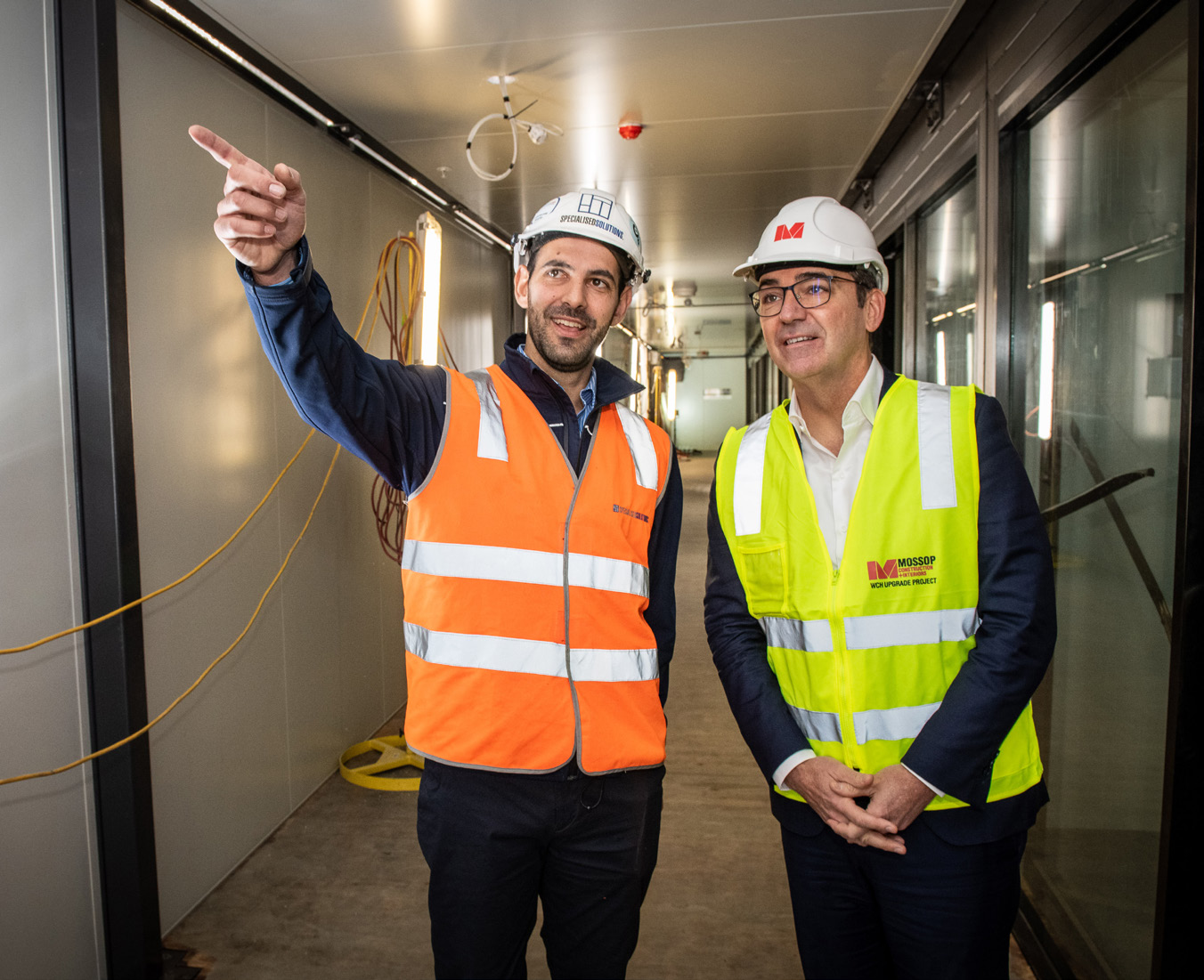Adversity sparking SA innovation

Adversity has become the parent of innovation for South Australian companies that have pivoted to meet the changing needs of organisations and businesses during the COVID-19 pandemic.
Companies at Tonsley Innovation District have developed entirely new products or tailored their offering to suit the times. What unites them is lateral thinking, hands-on agility and a desire to help protect people during the COVID-19 pandemic.
Health, medical devices and assistive technologies is one of four focus sectors at Tonsley, where an Adelaide family company has swung into action to provide much needed PPE for essential workers.
Form CUT Australia, owned by father and son Joe and Karl Falzon, has retooled to produce face shields. It’s a significant and timely diversification for the company, which has mainly produced specialist packaging products for defence and healthcare. It’s also a particularly satisfying achievement for Karl, who has drawn upon his skills as an industrial designer to create four versions of face shields to suit the needs of healthcare personnel, including surgeons, ICU doctors and nurses, paramedics, GPs and their staff, and for workers in aged and disability care.
Karl said the company’s premises at Lonsdale did not meet requirements for production of medical devices listed with the Therapeutic Goods Authority (TGA). The Tonsley team responded to his request for suitable premises, identifying a tenancy in the Administration Building adjacent to South Road, then pushing through the paperwork and making the tenancy ready in three weeks.
“Tonsley is a great fit for the direction that we want to take Form CUT Australia,” Karl said. “We are looking at moving our entire operation here.”
In barely two months, Karl and his team have identified the potential to produce face shields, designed them, set up at Tonsley, sourced machinery and materials, and begun producing the devices to exacting TGA standards. They are now fulfilling orders from a medical device supplier and three local GP clinics, with more inquiries coming from major government agencies and medical practices across Australia.
The Medical Device Research Institute based within Flinders University at Tonsley is also helping to keep our frontline health workers safe through its new mask testing facility, which ensures P2/N95 respirators and surgical masks meet the required safety standards for hospital use.
The facility, which is a partnership with the University of SA, received a $450,000 grant from the State Government to enable medical PPE to be tested and manufactured within SA.
Also at Tonsley, Specialised Solutions is working with a group of local companies to design and manufacture nine temporary COVID-19 treatment units for the Women’s and Children’s Hospital.

Premier Steven Marshall recently launched the project which will increase the number of children the hospital can assess and treat, while limiting potential spread of infection to patients and staff. The units will be fitted with standard emergency equipment and connected to the hospital’s Emergency Extended Care Unit via an external corridor. The units cost $900,000 and were funded by the Federal Government.
Another Tonsley company, Humanihut, has launched a portable isolation hospital to treat respiratory patients during major medical emergencies. Named after the SA-born medical scientist and joint Nobel Prize winner, the Florey isolation hospital was adapted from the company’s designs for disaster accommodation and has attracted interest from government clients in the United States, Europe, Middle East and Australia.
Humanihut Co-Founder and Managing Director Neale Sutton said the Florey was created for the COVID-19 outbreak as a robust and deployable alternative to tents, the current industry standard for field hospitals.
The basic configuration has 16 flatpack single-bed patient rooms with ensuites, with large containers for a nurse’s station, staffroom, kitchen, bathroom and laundry at both ends.
A weatherproof corridor connects the containers and patient rooms. The huts are steel skinned and have insulated walls to maintain a suitable temperature for patients and staff.
Tonsley is a thriving innovation district, bringing together research and education, established businesses and start-ups, business incubators and accelerators, government and the wider community, to connect and collaborate.